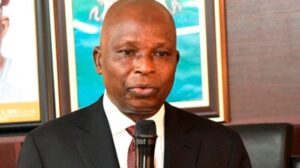Subsidy removal: Widen scope in discussions with labour – Aremu urges FG
The Director-General, Michael Imoudu National Institute for Labour Studies, Ilorin, Mr Issa Aremu, has urged the Federal Government to expand the scope of its negotiations in the aftermath of fuel subsidy removal.
Aremu urged the government to include employers of labour in the ongoing discussions with organised labour on the needed actions following the subsidy removal.
He gave the advice in an interview with the newsmen, on Tuesday in Lagos, on the sideline of an event organised as part of activities of Mandela Day celebration.
Aremu said that the measure would ensure transparency in managing inevitable policy reforms without imposing shock therapy on Nigerians and worsening poverty.
According to him, all other issues must be brought to the table.
“However, as we agree on that, the government must engage people, also mitigate the impact of the crisis facing the country, because any transition policy initiative has its benefits and costs.
“It is now time for us to relook how to manage the transition before it gets out of hand, and the only way to do so is through negotiation, discussion.
“One of the strong virtues of Nelson Mandela was that he was open to negotiation.
“He negotiated with his enemies and had reconciliation with them.
“We cannot engage in policy fights because we are not enemies, we are all citizens.
“It calls for urgent discussion by all the stakeholders that while we know the market is important, we cannot allow market forces in which the cost of doing business is getting more expensive,” he said.
Aremu said it was undermining the ease of doing business and cost of living, and could affect the drive for productivity and bid to reposition Nigeria for renewed hope and prosperity.
Petrol price went up on Tuesday, sparking outcry by many motorists who were still battling with the earlier increase that followed the new administration’s pronouncement on the end of petrol subsidy.
President Bola Tinubu’s pronouncement on the policy on May 29 was followed by an increase in pump price of petrol from N198 per litre to N500 per litre, and above this in some parts of the country.
Following the policy, organised labour and the federal government went into negotiations on ways to cushion the effect of the new policy on workers.
Tuesday’s increase came while the discussions were still on, but the Nigerian National Petroleum Company Ltd. has attributed it to market forces.
The increase on Tuesday saw the price jump from N500 to as much as N617 in some parts of the country, with the resultant effect of transportation costs.
The organised labour has expressed its displeasure with the new increase.




